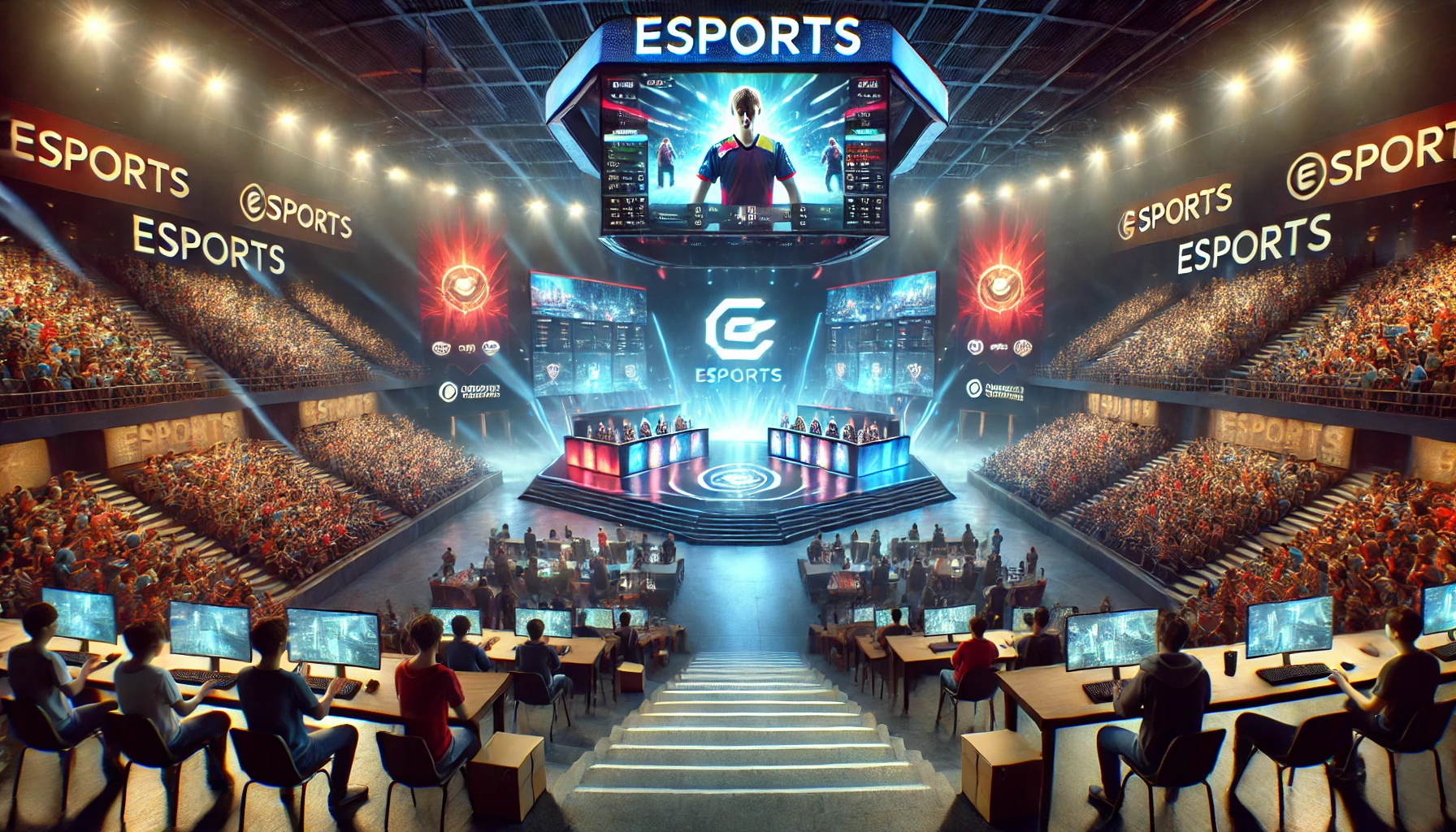Electronic Sports: A Gaming Revolution
The emergence of electronic sports, commonly known as esports, has evolved from a specialized pastime into a worldwide marvel, altering the gaming industry’s framework. With a global fan base, substantial financial backing from leading enterprises, and the creation of professional circuits, esports now represents a powerful segment of the larger gaming field.
You will find good games on this site https://1winua.com.ua. This discourse examines the significant effects of esports on the gaming industry, spotlighting its role in shaping game creation, promotional tactics, avenues for revenue, and its societal importance.
The Ascent of Esports
Esports traces its lineage to the dawn of competitive gaming, with the inaugural prominent competition occurring in 1972 at Stanford University. The late 1990s and early 2000s marked a pivotal period for esports, propelled by the spread of broadband internet and online multiplayer games. Iconic titles such as “StarCraft,” “Counter-Strike,” and “Warcraft III” established the groundwork for contemporary esports, nurturing competitive circles and professional gamers.
The 2010s witnessed an esports explosion, thanks to the surge in popularity of “League of Legends,” “Dota 2,” and “Counter-Strike: Global Offensive.” This growth was further spurred by the advent of streaming services like Twitch, enabling enthusiasts to view live competitions and engage with beloved players and teams.
Influence on Game Production and Design
Esports’ rise has profoundly influenced game production and design. Developers now prioritize a game’s competitive potential from the beginning, aiming to create balanced and captivating experiences suitable for both casual and professional play. Essential considerations include:
- Balanced Gameplay: It is critical to prevent any one strategy or character from becoming too powerful to ensure a just and competitive atmosphere.
- Spectator Experience: Games are crafted with straightforward visuals and compelling gameplay to captivate viewers, including those less familiar with the game.
- Frequent Updates: Games are regularly refined to rectify balance issues, introduce fresh content, and maintain player interest.
Titles like “Fortnite,” “Overwatch,” and “Valorant” are designed with esports competitiveness in mind, including solid competitive modes and ongoing updates to maintain engaging and equitable gameplay.
Marketing and Community Involvement
Esports has revolutionized both game marketing and community development. Conventional marketing methods are now bolstered by esports competitions, sponsorships, and collaborations with influencers. Important elements encompass:
- Tournaments and Events: Organizing or backing major events can create buzz and attract new participants. Competitions like “The International” for Dota 2 and the “League of Legends World Championship” have drawn millions of spectators.
- Streaming and Content Production: Platforms such as Twitch and YouTube facilitate broad audience outreach via livestreams and content creation. Influencers and pro gamers generate abundant content, driving engagement and fostering community bonds.
- Social Media Interaction: Social media platforms are employed to nurture a committed fan base. Game developers use these outlets to circulate updates, converse with players, and promote events.
New Avenues for Revenue
Esports has unlocked novel revenue paths for the gaming sector. Traditional revenue models like game sales and in-game transactions are now complemented by:
- Sponsorships and Advertisements: Diverse industries, from tech to consumer goods, sponsor esports teams and events. Advertising on streaming services and during broadcasts also yields significant income.
- Merchandising: Esports teams and events monetize through the sale of branded goods, such as apparel, accessories, and collectibles.
- Ticket Sales and Media Rights: Major tournaments and events reap profits from ticket sales to live audiences, while deals for media rights with broadcasters and streaming services generate substantial revenue.
- In-Game Purchases: Many games offer cosmetics, battle passes, and other in-game items favored by esports enthusiasts, ensuring a consistent revenue flow.
Societal Influence
Esports has made a notable societal impact, affecting not only gaming but also mainstream entertainment and media. Key cultural shifts include:
- Mainstream Acceptance: Esports competitors are now acknowledged as professional athletes, some achieving celebrity status. This acceptance has contributed to legitimizing gaming as both a career and entertainment form.
- Cross-Sector Collaborations: Esports has fostered partnerships with traditional sports, music, and entertainment sectors. Events like the Fortnite Marshmello concert and collaborations with major sports leagues exemplify this trend.
- Youth Participation: Esports holds strong appeal for younger demographics, offering platforms for involvement and vocational prospects. Educational entities are also adopting esports, providing scholarships and forming competitive squads.
Challenges and Prospective Developments
Despite its swift expansion, esports encounters several challenges, including concerns over player well-being, cheating, and upholding competitive integrity. Tackling these issues is vital for the industry’s ongoing success and longevity.
The future of esports appears promising, with advancements in technology such as virtual reality and 5G likely to enrich the spectator experience and introduce new competitive gaming possibilities. The growing participation of traditional sports organizations and global brands is set to further cement esports’ place in the mainstream.
Conclusion
Esports has unequivocally revolutionized the gaming industry, influencing aspects of game development, marketing strategies, revenue models, and cultural perceptions. As the sector forges ahead, it promises to shape the future of gaming and entertainment, offering fresh opportunities for gamers, creators, and enthusiasts. By embracing esports’ potential and addressing its challenges, the industry can continue to thrive and positively impact the gaming landscape.
